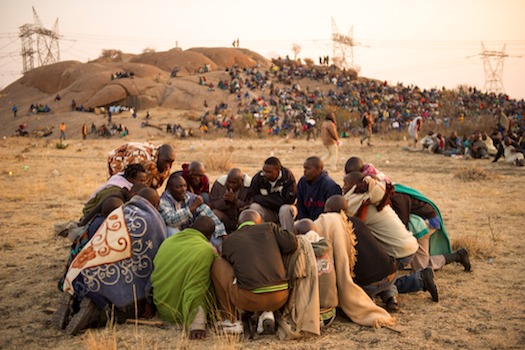- About
- Topics
- Picks
- Audio
- Story
- In-Depth
- Opinion
- News
- Donate
- Signup for our newsletterOur Editors' Best Picks.Send
Read, Debate: Engage.
| April 29, 2016 | |
|---|---|
| topic: | Economic Fairness |
| tags: | ##RhodesMustFal, #Afrikaans, #ANC, #Buhle Zuma, #South Africa, #UCT |
| located: | South Africa |
| by: | Shasha Seakamela |
What came to be known as the #RhodesMustFall campaign began at The University of Cape Town (UCT) when students were calling for the removal of the Cecile John Rhodes’ monument erected in the centre of their campus. Rhodes was a British imperialist. He believed, above all else, in the glory of the British Empire and the superiority of the Englishman and British Rule.
The campaign changed its name after the physical removal of the Rhodes monument. The campaign #FeesMustFall took over with students protesting about the slow pace of economic transformation leading to the academic exclusion of many capable but ‘poor’ African youths. Most South Africans still believe the #FeesMustFall protest was the biggest in the country since the end of Apartheid in 1994. The importance of the protest demonstrates that many South Africans share not only the students’ but the entire black population’s anger that the problem of transformation has not yet been properly addressed.
As Dr Buhle Zuma from UCT puts it, before 1994 the colonial and Apartheid system had worked to cast black people as mere ‘things.’ “We've tried, for example, to describe South Africa as a ‘Rainbow Nation’ but this is fraught with limitations. It leaves no space for counter-narratives expressed during events like the Marikana massacre, the Rhodes Must Fall movement at UCT, and the spates of political protest by people agitating for their basic human rights – what the state called ‘service delivery’ protest. We got the transition moment wrong, retrospectively,” Dr Buhle Zuma said.
Even today one cannot fail to notice that the upper echelons of companies in South Africa are still mainly white. Many believe that the root of the problem is the African National Congress (ANC) government’s inability to transform South Africa into a more dynamic and equitable society. The forged negotiations between the ANC and the former Apartheid government in 1994 meant white minority retained disproportionate power over the economy and other important sectors, including higher education. Some political analysts go further to argue that transformation in South Africa today only benefited a small portion of the mostly politically connected black elite.
Prior to these recent student campaigns the country has witnessed numerous service delivery protests over the past few years. This testifies that the poor majority no longer sees wealth redistribution through government largesse as a solution to their poverty. Therefore the students’ protest came not as a surprise but was actually long overdue. They were mainly carried on from the frustrated community delivery protests of the past. The campaign has since grown to include calls to highlight various issues including the outsourcing of workers at universities, the continuing rise of student fees, economic inequality, racism, police brutality and patriarchal practices on many university campuses across the country. All of the issues raised encompassed frustrations noticeable across the communities in the country.
So far it is one realises that something is starting to happen. The authorities at various universities are starting to listen although some students believe they are still misunderstood. Earlier this year, after days of protests against its language policy which insists on of the use of Afrikaans in lecture rooms, the University of Pretoria announced:“Following many queries, the University wishes to clarify that the proposed way forward on the language policy is that all lectures should be offered in English only”.
At UCT, following months of protests, Vice-Chancellor Dr Max Price late last year gave in to the students and abolished outsourcing practices. He declared that “UCT agrees to the principle of insourcing, advising that a process to determine the modalities, framework and timeframes of the implementation of that decision needs to be agreed upon by the parties involved”.
Outsourcing is the process of contracting workers through private companies, instead of employing those workers directly. It also makes it more difficult for workers to find representation and organisation in trade unions.
The University of South African (Unisa) has since joined in by announcing that they will start insourcing the contracted workers by or before June 2016.
Although single battles may have been won, the war is not over yet. We all know Apartheid was underpinned by attitudes far too deeply held to disappear in just two decades. While the students’ bravery and commitment should be applauded, it is not their job alone to ensure that change. Rather, we should be concerned about the absence of our government’s voice and actions in the many issues concerning the economic and social transformation of South Africa.
By copying the embed code below, you agree to adhere to our republishing guidelines.
